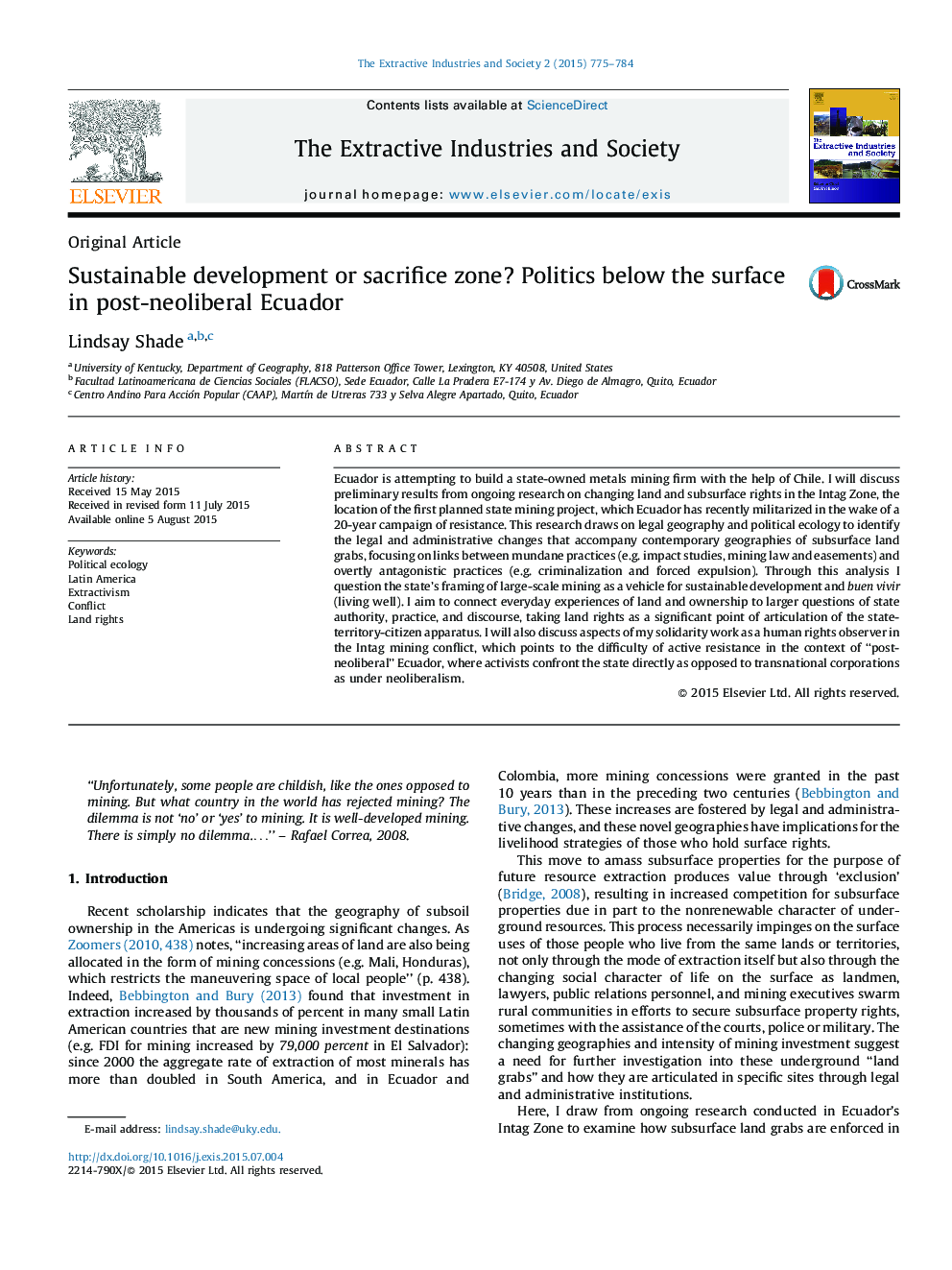| Article ID | Journal | Published Year | Pages | File Type |
|---|---|---|---|---|
| 1047555 | The Extractive Industries and Society | 2015 | 10 Pages |
•Large-scale mining is a key pillar of Ecuador state strategy for buen vivir/living well.•Laws that govern surface rights limit landowners’ options, contribute to displacement.•Discourse of buen vivir is biopolitical tactic to secure subsurface amidst protest.•Contradictions in law, criminalization, and militarization produce sacrifice zones.
Ecuador is attempting to build a state-owned metals mining firm with the help of Chile. I will discuss preliminary results from ongoing research on changing land and subsurface rights in the Intag Zone, the location of the first planned state mining project, which Ecuador has recently militarized in the wake of a 20-year campaign of resistance. This research draws on legal geography and political ecology to identify the legal and administrative changes that accompany contemporary geographies of subsurface land grabs, focusing on links between mundane practices (e.g. impact studies, mining law and easements) and overtly antagonistic practices (e.g. criminalization and forced expulsion). Through this analysis I question the state's framing of large-scale mining as a vehicle for sustainable development and buen vivir (living well). I aim to connect everyday experiences of land and ownership to larger questions of state authority, practice, and discourse, taking land rights as a significant point of articulation of the state-territory-citizen apparatus. I will also discuss aspects of my solidarity work as a human rights observer in the Intag mining conflict, which points to the difficulty of active resistance in the context of “post-neoliberal” Ecuador, where activists confront the state directly as opposed to transnational corporations as under neoliberalism.
